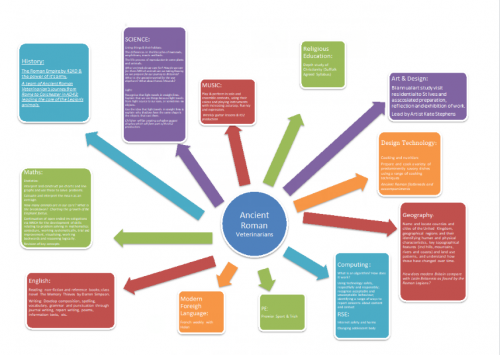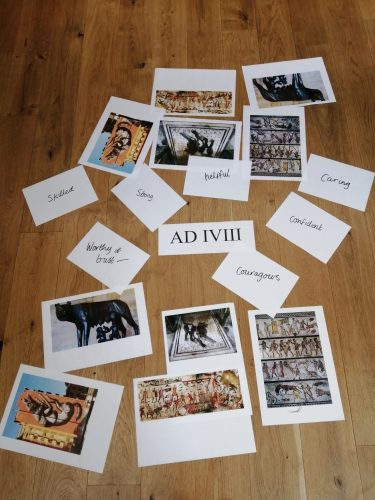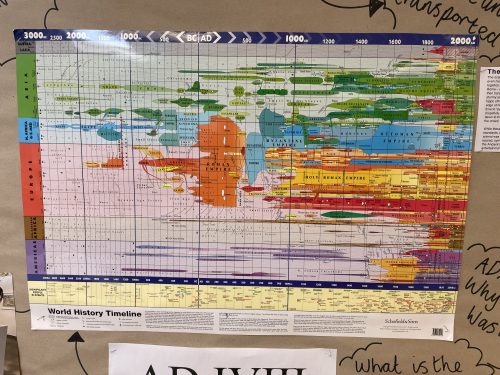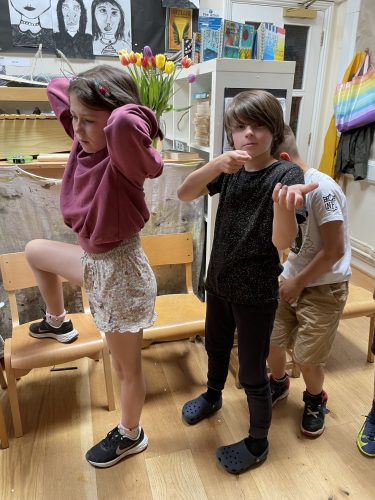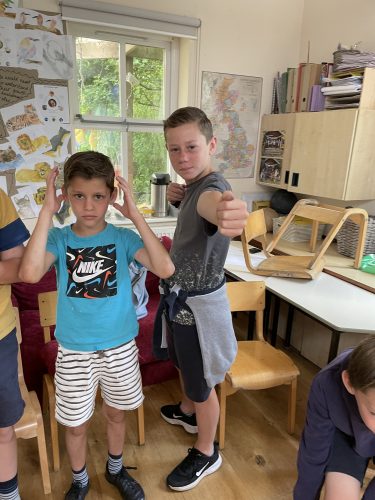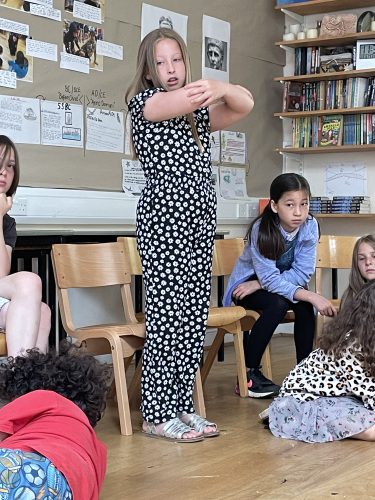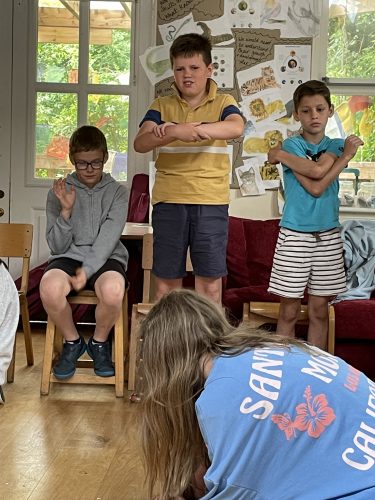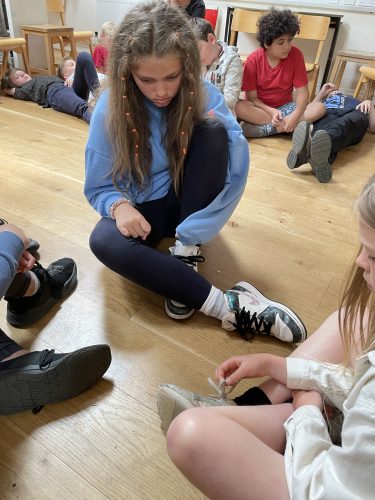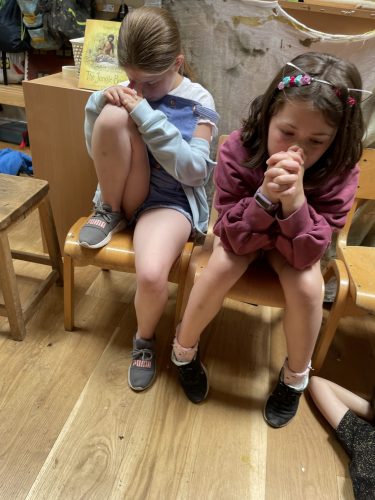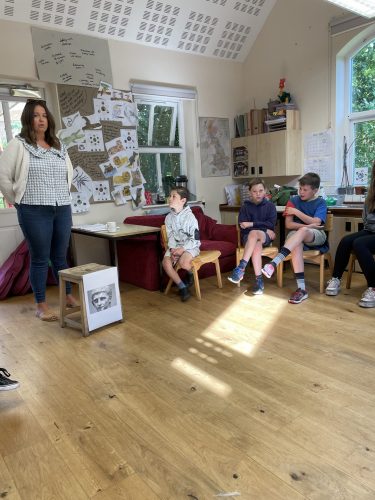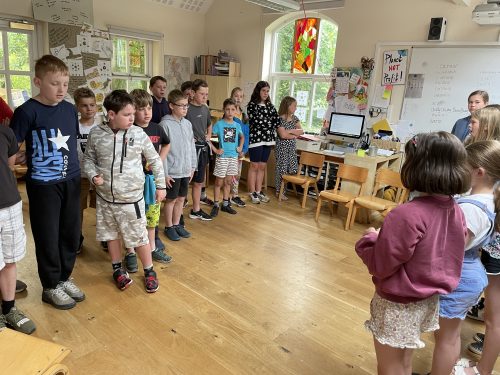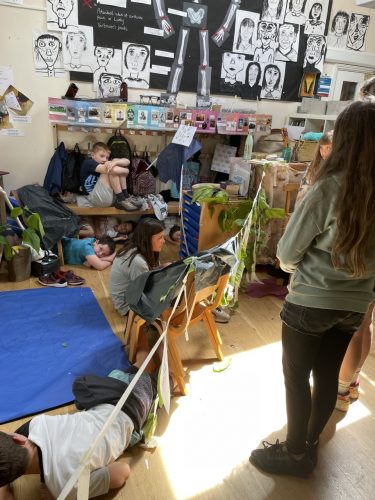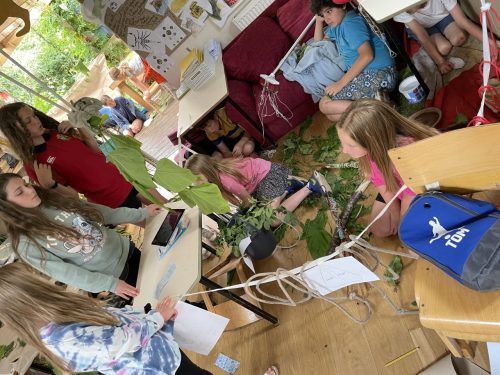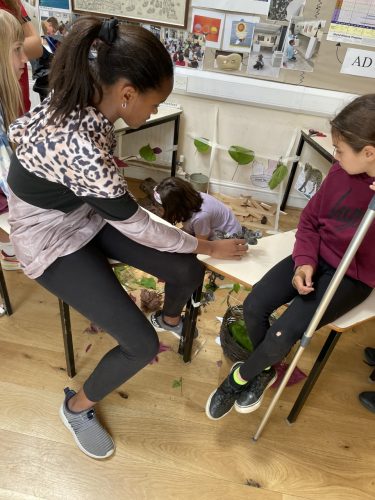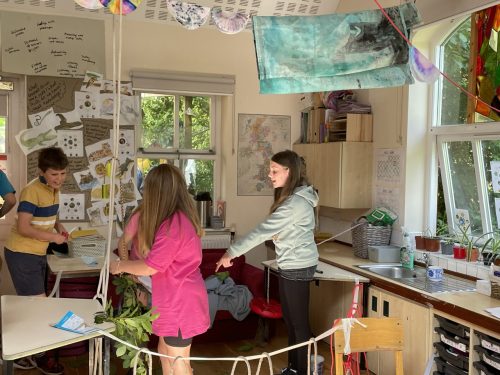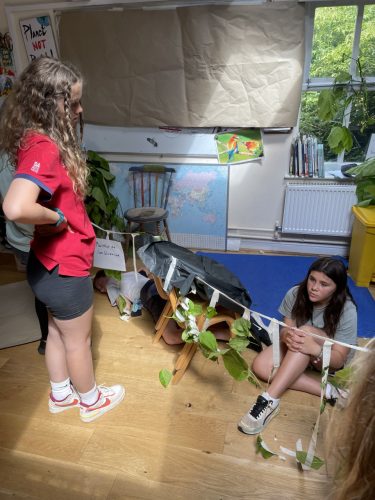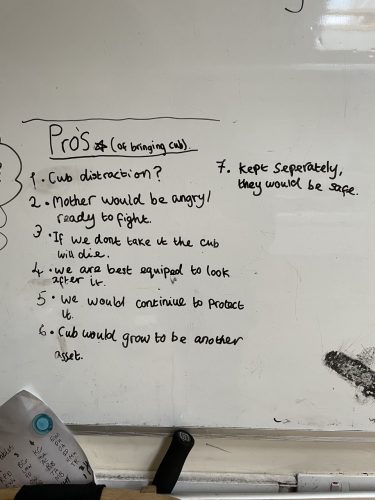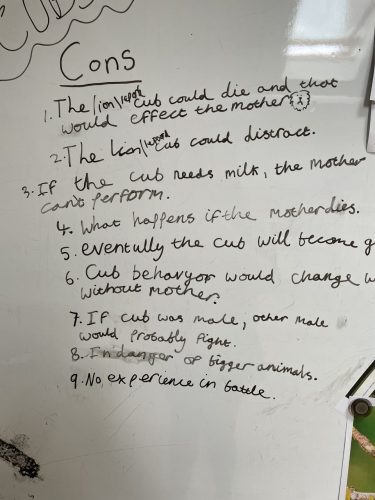Pupils enter the room to find themselves in the year AD43. Eager to find the significance of this year, we spend time examining a timeline and quickly establish that we are in Ancient Roman times. Children question the presence of various images of animals around the room. The question is raised: how were animals viewed in Ancient Rome? What animals were there? Did people keep pets? We take some time to read about this as a group.
We find out that Ancient Romans had great affection for the animals they kept as pets. We also learn exotic animals were imported on boats to Rome. These animals were put into ‘circuses’, and later the Colosseum, where they would be fight with one another- to the death.
Another question is raised, this time by the teacher: I wonder who treated these animals when they became ill, or needed looking after?
And so we begin to establish our expert status, as veterinarians of Ancient Rome. We consider what knowledge we require, and decide collectively on the following areas: anatomy, behaviour, reproduction, growth/development and medicine. This leads us to study aspects of the science curriculum in depth- describing and comparing the life cycles of mammals, amphibians, insects and birds.
Along with considerations of what our knowledge is, we also consider what personal skills we need. Using dramatic convention, we go in role to represent a significant event in our careers. Later we write of these experiences- using powerful descriptions to recount events.
In order to give further context to our narrative, pupils are eager to learn more about Ancient Rome. They are also keen to find out the significance of AD43. We spend time collectively researching key events of this period, and co-create an Ancient Roman timeline. We learn about the Roman Empire, and it’s spread throughout Europe. Maps, atlases and digital mapping are used to explore the progression of the empire over the years.
Back in role as the Veterinarians, we are told to expect a visit.
The teacher (in role) introduces himself as Aulus Plautius, the General of the Roman Army. He is soon to be leading his legions to Britannia. He explains that previous attempts to conquer the lands have been unsuccessful, and that it is vital that Emperor Claudius succeeds where Julius Caesar has failed- twice.
In order to do this, the plan is to bring with the legions a troop of exotic animal, including lions and an elephant. The presence of such beasts is sure to intimidate and baffle the crude and unsuspecting tribes of Britannia. Plautius makes it clear to the vets that this is not an optional commission. They face severe punishments- even death- if they refuse to comply.
We freeze the moment and speak our thoughts. We hear of our fears of the unknown lands and people we are to face. We hear of sorrow at the thought of leaving our families, potentially forever. We hear empathy for the animals and other legionaries who face paying the ultimate sacrifice for the sake of the Empire.
We create together the moment when the vets meet the other soldiers, with pupils choosing for themselves to either represent an established legionnaire meeting the military vets for the first time or visa versa. Many of the legionnaires (children in role), question the presence of the vets- after all- who are they to take this vast challenge on? Jacob notes that he feels resentful that his prestigious position has been so hard won and that the vets are getting something of a ‘free ride to glory’! Kitty worries that the presence of the animals and their vets will hinder the attack on Britannia. Those in role as the vets are anxious. These soldiers are intimidating, strong and brutal. What will become of them on the journey across the seas to unknown lands. We produce powerful diary entries. Out of role we learn more about the power of the Roman Army and it’s vast resources and structure.
All that now remains is meeting the animals for whom we are to care.
We prepare the space in which the exotic animals are to travel, and plot our journey to Britannia. Following this we use dramatic convention to explore the feelings of the animals and some of the questions we have. Children in role as the animals speak of their fears, their confusion and of their deep contempt at being captured and taken away from their pack and homelands.
Two problems arise from this episode:
- The lion we are taking has recently given birth to a cub and is still nursing it. We take time to discuss the pros and cons of taking the cub with us.
- The elephant (teacher in role) reveals she is pregnant. Children wonder how soon she is due to give birth.
We take time to learn about the gestation periods of mammals. We compile charts and compare our data. We will go on to present this data in the form of graphs, next week.
